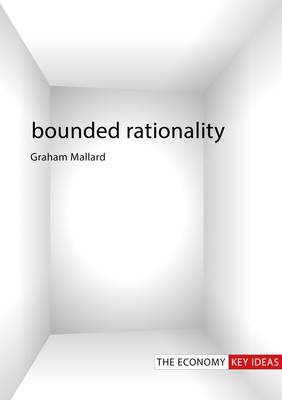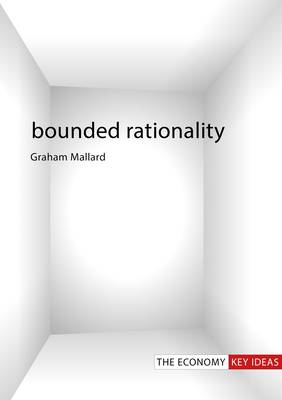
- Retrait gratuit dans votre magasin Club
- 7.000.000 titres dans notre catalogue
- Payer en toute sécurité
- Toujours un magasin près de chez vous
- Retrait gratuit dans votre magasin Club
- 7.000.0000 titres dans notre catalogue
- Payer en toute sécurité
- Toujours un magasin près de chez vous
Description
This short book introduces the field of bounded rationality to a beginning readership in economics. It is intended to be a tour of the key concepts involved in the modelling of bounded rationality, the approaches that have been adopted and some of the most revealing, and at times surprising, findings that have been generated. The book explores how bounded rationality has been used in economic models to shed light on real life behaviour and how doing so has led to specific policy implications that would otherwise have gone unappreciated. The exposition is intended to be non-technical and free from any mathematical expressions and workings and the focus throughout is primarily on the behaviour of individuals or organisations within given situations rather than on macroeconomic concerns. How the field has evolved since the 1950s and the strengths and weaknesses of its current research programme, including its relationship with behavioural economics, are assessed.
Understanding how we take economic decisions and how we depart from rational choice theory has become fundamental to understanding the workings of the economy at all levels. The book is therefore excellent preparatory reading for degree-level courses in economics as well as specific courses in behavioural economics and philosophy of economics.Spécifications
Parties prenantes
- Auteur(s) :
- Editeur:
Contenu
- Nombre de pages :
- 160
- Langue:
- Anglais
- Collection :
Caractéristiques
- EAN:
- 9781788212588
- Date de parution :
- 01-09-20
- Format:
- Livre broché
- Format numérique:
- Trade paperback (VS)
- Dimensions :
- 147 mm x 208 mm
- Poids :
- 181 g

Les avis
Nous publions uniquement les avis qui respectent les conditions requises. Consultez nos conditions pour les avis.






